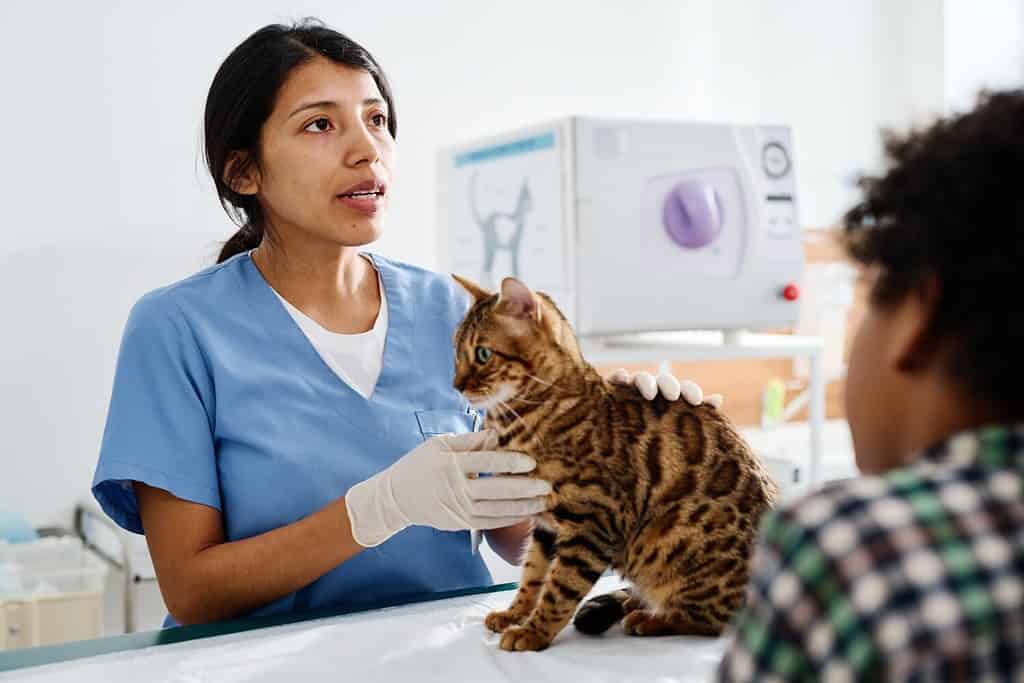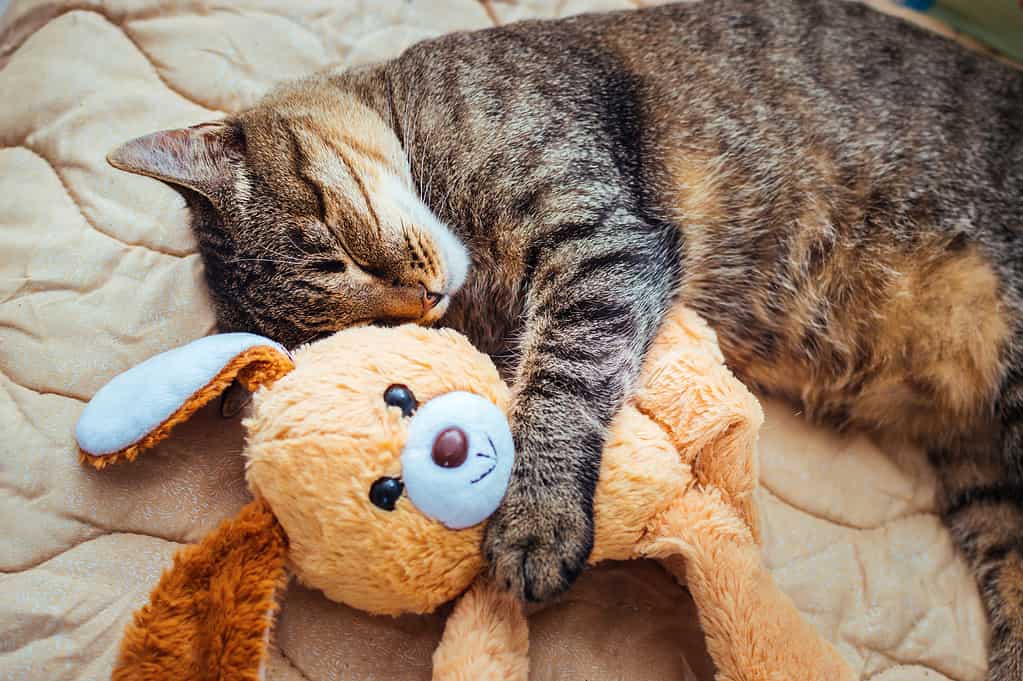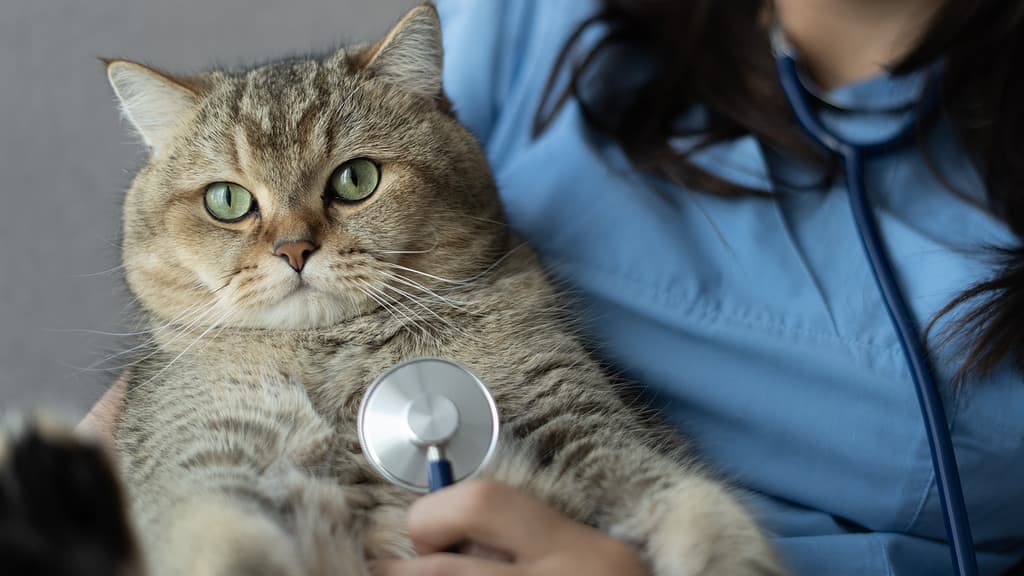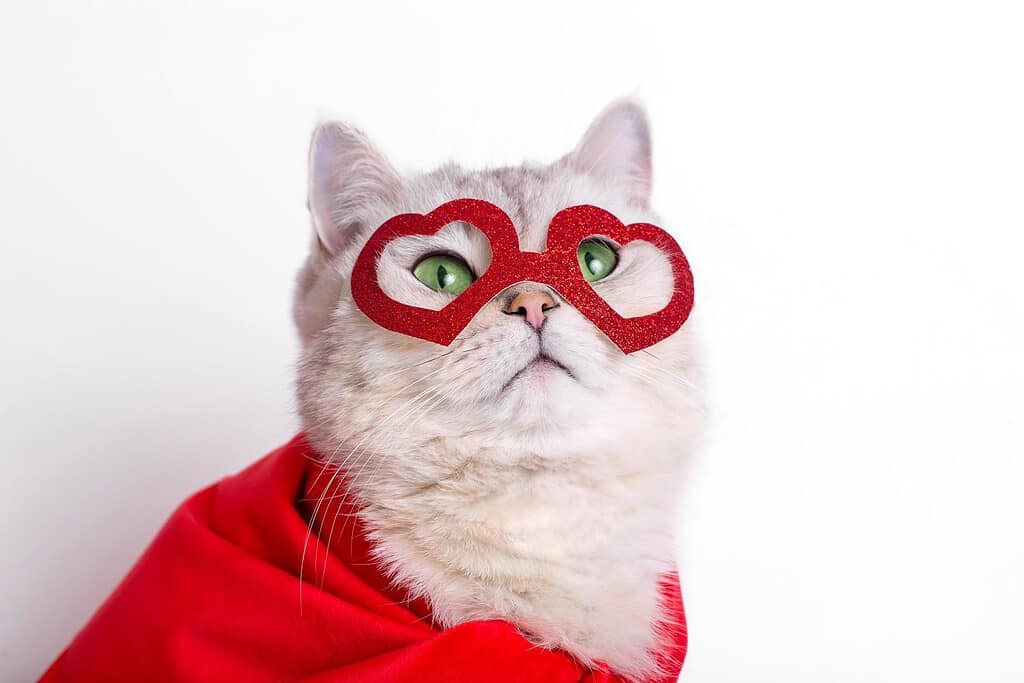It’s the kind of diagnosis that means changes for your kitty. But not always. This condition varies significantly from cat to cat, which affects how they experience changes, what medications may be best, and their prognosis. While for some cats, the disease may present as acute and severe, in other cases, cats may live full lives as if they didn’t have the condition at all. Learn about feline hypertrophic cardiomyopathy (HCM), including causes, symptoms, and treatment! Plus, get some insight from a cat-only vet who shares how the disease is diagnosed and which medications may be indicated.
Feline Hypertrophic Cardiomyopathy (HCM): Causes, Symptoms, and Treatment
What Is Feline Hypertrophic Cardiomyopathy?
HCM is a cardiac disease that leads to the thickening of the muscular walls in a kitty’s heart. When this occurs, the heart is no longer as efficient as a healthy heart. Not only do symptoms show up relating to the heart, but cats may also experience other symptoms in different parts of their bodies.
Ultimately, with the heart not pumping blood efficiently, the backed-up blood gets caught in other heart chambers and may even travel to the lungs, which could lead to more serious issues. With the heart trying to work as efficiently as a healthy heart, a cat may experience several symptoms, including changes to their heart rhythm.
The symptoms and the prognosis are entirely different from cat to cat. In some cases, certain symptoms can be prevented, and measures can be taken to ensure that the kitty has a good quality of life after diagnosis. Although there is a range of associated symptoms, some felines with HCM don’t appear to be sick at all.
Feline Hypertrophic Cardiomyopathy Causes
Genetic Predisposition

HCM may develop as a result of a genetic predisposition.
©Pressmaster/Shutterstock.com
HCM is often due to a genetic predisposition. There are certain cat breeds that are more likely to develop this condition. They include British shorthairs, Norwegian forest cats, bangles, ragdolls, Persians, and Maine coons. These breeds are more likely to have a mutation in a gene (A31P) that is responsible for ensuring the heart has healthy muscles.
Hormonal Conditions
Though genetic predisposition is most common for the development of this disease, it’s also possible that hormonal conditions contribute to HCM. For example, hyperthyroidism is linked to HCM. Additionally, if there is an excess release of a growth hormone, this could cause the muscular walls of the heart to grow and thicken.
Cancer
In some cases, cancer of the heart is the culprit for the development of HCM, as it can increase the size of the muscular walls near the heart’s left ventricle.
Other Diseases
Some other diseases may also cause HCM, such as kidney disease. With kidney disease, a kitty experiences high blood pressure, which means the heart has to work a bit harder. When this happens, the ventricle walls thicken.
Feline Hypertrophic Cardiomyopathy Symptoms
Abnormal Heart Rhythm
One of the most common symptoms of HCM is an abnormal heart rhythm. A cat may develop arrhythmias or heart murmurs, which may lead to a rather weak pulse.
Lethargy/Tiring Easily

A cat with HCM may tire more easily and require more rest.
©anastas_/1391797125 via Getty Images
Cats with HCM don’t have as much energy as they used to so they may stop playing or exercising after short sessions, needing time to rest and recover. They may also display lethargy and weakness overall, leading to longer periods of rest and sleep.
Fluid Retention
In some cases, fluid collects in the lungs, which may cause a cat to wheeze. Fluid may also collect in the abdomen, which becomes evident because the belly bloats.
Paw Changes
Another symptom of HCM in cats is a change in the appearance of the paws. You may notice that their nail beds and foot pads turn blue.
Trouble Walking/Fainting
Cats with HCM may experience trouble walking. This is often related to blood clots, which also show up with other symptoms like vomiting. Additionally, cats with HCM may faint or collapse.
Appetite Loss
A cat with HCM may lose enthusiasm around food.
Heart Failure/Sudden Death
It’s relatively rare for cats with HCM to experience sudden death but it is a possibility for cats with HCM to experience heart failure and pass away suddenly.
How Is Feline Hypertrophic Cardiomyopathy Diagnosed?

Diagnosis for HCM requires an echocardiogram.
©izzetugutmen/iStock via Getty Images
Dr. Colleen Wallace, a cat-only vet at Cozy Cat Veterinary Hospital in Raleigh, NC, told A-Z-Animals, “Hypertrophic Cardiomyopathy, or HCM, is the most common cat heart disease. It can only be diagnosed by performing an echocardiogram, or ultrasound of the heart. This allows the veterinarian to check for thickened left ventricular walls, enlarged left atria, and other physical changes that occur with the disease.”
She went on to explain, “Depending on the age of the cat at diagnosis and the amount of disease present, the veterinarian will prescribe medications to help the heart function more easily and thus decrease the rate of progression. Unfortunately, heart disease is always progressive, so the treatment is aimed at slowing the progression. ACE inhibitors like Benazepril, beta-blockers like atenolol, and medications like Plavix to prevent blood clots are widely used depending on the amount of disease present. Monitoring with echocardiograms every one to two years is recommended.”
Feline Hypertrophic Cardiomyopathy Treatment
Treatment for HCM varies depending on the cat. However, there are several medications a veterinarian can prescribe to alleviate symptoms. For example, clopidogrel is a medication that helps with the prevention of blood clots. Aspirin can help to this end as well. There is also a medication called diltiazem that helps to prevent fluid buildup. This medication may also assist with reducing ventricular wall thickness.
Beta-blockers may be prescribed to assist with abnormal heart rhythms and high blood pressure. Along with medication, some cats with HCM may benefit from regularly having excess fluid removed from their lungs. This is called pleurocentesis. If the kitty is hospitalized, oxygen therapy may be recommended. In severe cases, cats may require intubation to prevent respiratory failure.
Prognosis for Feline Hypertrophic Cardiomyopathy

The prognosis for cats with HCM varies.
©Natasha Zakharova/Shutterstock.com
Once a cat has HCM, it has to live with the condition for the rest of its life. There is no cure. For kitties that don’t develop any symptoms at all, their lifespan may be just as long as a healthy cat’s. However, HCM is progressive, so even if there are no symptoms present at first, they may develop later. In many cases, a cat with symptoms has a lifespan of about two years from diagnosis.
With the presence of certain symptoms like congestive heart failure or blood clots, the lifespan may be significantly shorter, sometimes only several months after diagnosis. Stress can exacerbate this condition, which means a cat diagnosed with HCM needs to be kept as calm as possible. This means enriching their environment, so they have plenty of spots to settle into and cozy up.
They should have easy access to everything they need, including their litter box, their snacks, and fresh water. Some dietary changes can also help, especially since cats may experience appetite loss. Ultimately, the care plan for a cat with HCM is individual and owners must work directly with their veterinarians to ensure they are doing everything possible to keep their cat’s quality of life.
Can Feline Hypertrophic Cardiomyopathy Be Prevented?
If there is a gene mutation, HCM can’t be prevented. Reputable breeders follow through with their due diligence to ensure they don’t breed kittens with these mutations but without proper monitoring, kittens with the genetic predisposition for HCM may be born. Regular screenings to check for signs of heart disease can help catch it before symptoms start. Additionally, owners can focus on their cat’s heart health, providing nutritious foods, preventing obesity, and ensuring regular exercise.
The photo featured at the top of this post is © iStock.com/Tomwang112
Thank you for reading! Have some feedback for us? Contact the AZ Animals editorial team.







